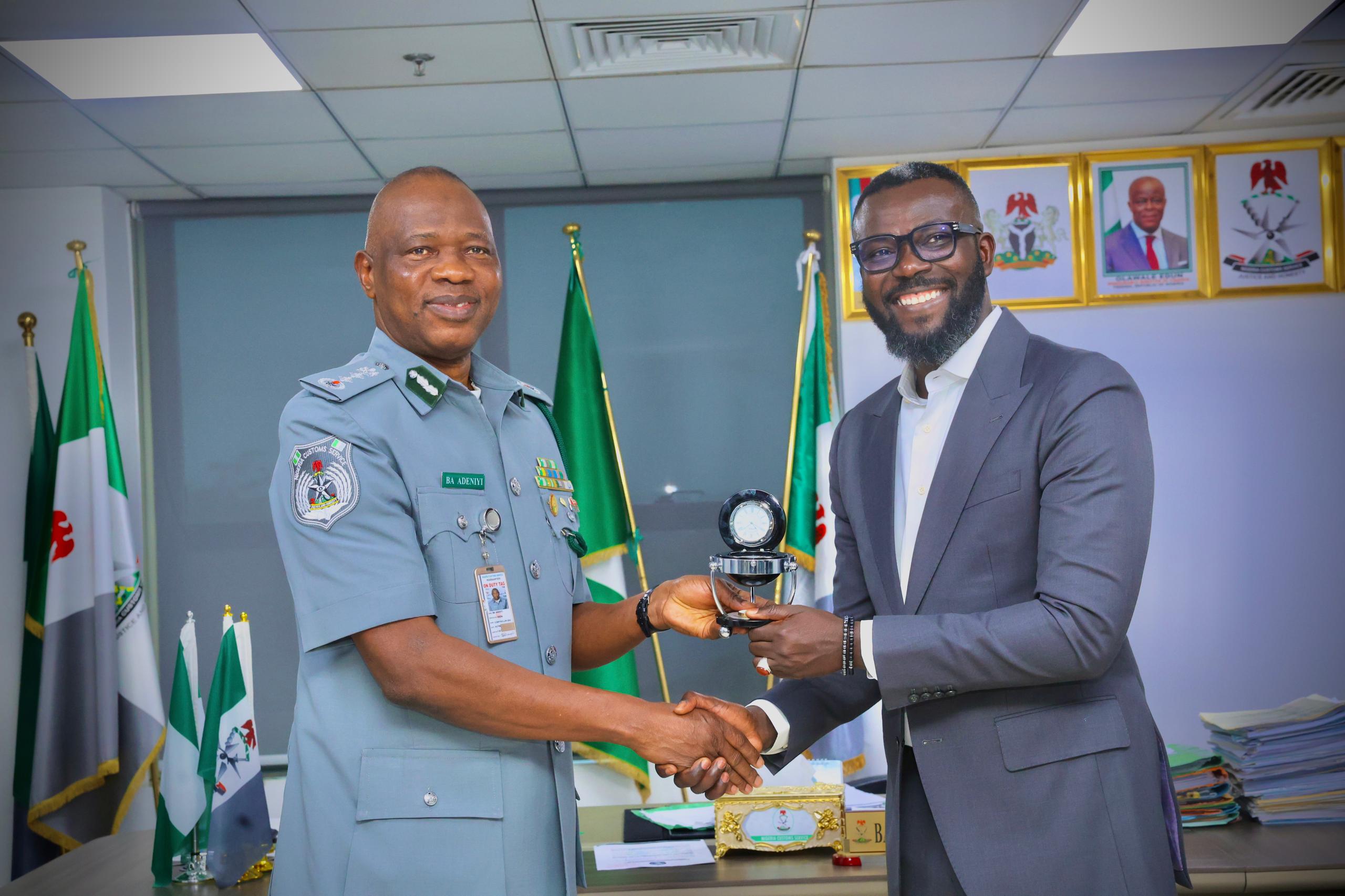Comptroller-General of Customs, Bashir Adewale Adeniyi, has reaffirmed the Nigeria Customs Service’s commitment to stronger collaboration with the United Nations Office on Drugs and Crime (UNODC) to combat drug trafficking and transnational organised crime.
Adeniyi made this announcement during a meeting with a UNODC delegation led by Country Representative, Cheikh Toure, at Customs Headquarters in Abuja.
He emphasised the critical role of Customs in addressing drug-related crimes, highlighting their threat to national security and the growing problem of drug abuse, particularly among youth.
Adeniyi explained that with the National Security Adviser’s approval, the NCS has intensified efforts to immediately destroy confiscated drugs, preventing their re-entry into circulation, noting the destruction of over 71 containers of illicit substances.
He stressed the importance of intelligence sharing, citing UNODC’s global network, and expressed interest in models like the US Container Security Initiative.
He also raised concerns about the environmental impact of burning seized drugs and called for the adoption of incineration technology for safer disposal.
Looking ahead, Adeniyi announced Nigeria will host a Regional Donour Conference for Customs Administrations in April 2025, bringing together 23 administrations and development partners to discuss supporting Customs operations.
He invited UNODC’s active participation, anticipating the conference will highlight their contributions and explore new cooperation areas.
Toure commended the NCS for its anti-drug trafficking efforts and pledged continued UNODC support, recognising Customs officers as highly trained professionals in Africa.
He noted the decade-long collaboration between UNODC and NCS in training, intelligence sharing, and environmental crime prevention, but emphasised the need to move beyond training to intelligence-driven interventions at ports and airports.
Toure highlighted the importance of regional collaboration, noting the cross-border nature of criminal networks, and acknowledged Nigeria’s leadership role in Africa, citing its support for other nations in strengthening enforcement capacities.
While acknowledging past UNODC support, including refurbishing Customs offices, Toure stressed that material support alone is insufficient and called for effective detection mechanisms at ports and borders, suggesting adapting initiatives like the Container Control Programme.
He reaffirmed UNODC’s commitment to exploring new collaboration areas, particularly in intelligence sharing, technology-driven screening, and sustainable drug disposal.
In a separate development, the NCS and the National Environmental Standards and Regulations Enforcement Agency (NESREA) have reaffirmed their commitment to enhancing collaboration to bolster environmental protection, trade efficiency, and regulatory compliance.
Speaking during a courtesy visit by NESREA’s management team to the Customs headquarters in Abuja on Tuesday, the Comptroller-General of Customs, Adewale Adeniyi, underscored the significance of inter-agency synergy in achieving national economic and security objectives.
“We recognise the importance of collaboration and partnership. Many of us have witnessed the golden era of synergy between Customs and NESREA, whether at seaports or border stations. Our commitment to this partnership remains unwavering,” Adeniyi stated.
NESREA’s Director-General, Innocent Barikor, commended Customs for its progressive reforms and reiterated the agency’s dedication to strengthening collaboration.
He emphasised the need for stricter enforcement of environmental regulations, particularly in curbing the influx of hazardous imports.
